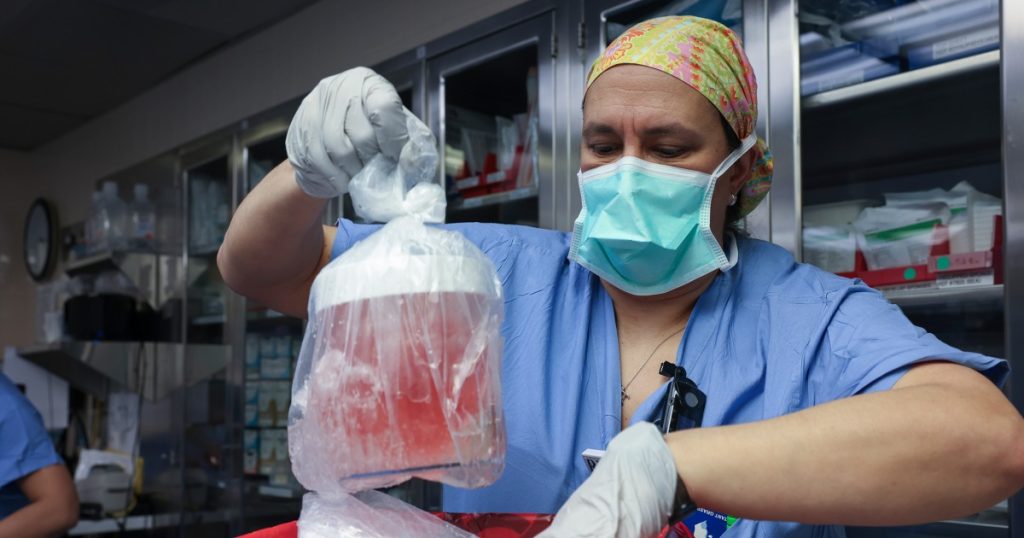Last Saturday, Richard Slayman made history by becoming the first living person to receive a genetically modified kidney from a pig in a groundbreaking four-hour operation at Massachusetts General Hospital in Boston. Slayman, 62, had experienced kidney failure and was on dialysis when he underwent the procedure, which has been hailed as a milestone in the field of xenotransplantation, offering hope to the many people on organ transplant waiting lists in the U.S. and around the world. There have been two previous pig-to-human heart transplants in the U.S., but both patients did not survive beyond two months.
Despite the risks associated with xenotransplantation, Slayman’s recovery is progressing well, with no signs of immune rejection so far. While doctors are monitoring him closely for any complications, they are hopeful that he will be able to return home soon. The success of this genetically modified pig kidney transplant could potentially be a game-changer in the field, although the longevity of the transplanted organ remains uncertain. There is hope that it could serve as a bridge for Slayman until a human allograft becomes available, or possibly even last him the rest of his life.
Xenotransplantation is not yet approved by the FDA, and while it has been proposed as a solution to the organ shortage crisis, more data is needed before it can be widely implemented. Slayman’s transplant was performed under the FDA’s compassionate use program, which allows patients with life-threatening conditions access to experimental treatments when no other options are available. This case is considered a one-off for now, and additional clinical trials with multiple patients are required to assess the safety and efficacy of xenografts before the procedure can be more widely utilized.
Prior to receiving the pig kidney, Slayman had undergone a kidney transplant from a deceased human donor in 2018, but the organ began to fail in 2022, leading to the decision to pursue the genetically modified pig kidney transplant. The kidney contained 69 gene edits, with 10 aimed at reducing the risk of rejection and 59 meant to lower the risk of viral infections. The successful transplant was met with applause in the operating room, with the kidney showing immediate signs of function, marking a significant achievement in the field of xenotransplantation.
Dr. Winfred Williams, Slayman’s nephrologist, noted that putting Slayman back on the waiting list for a human kidney would have meant a wait of six to seven years, which he may not have survived. The option of a pig kidney transplant was presented, which Slayman agreed to, having been frustrated with years of dialysis. The pig kidney was sourced from eGenesis, a drugmaker based in Cambridge, Massachusetts, and the surgery was performed by Dr. Tatsuo Kawai with the guidance of Dr. Leonardo Riella. Despite being a one-off procedure under compassionate use, the successful transplant represents a significant step forward in the field of xenotransplantation and offers hope to those in need of organ transplants.


